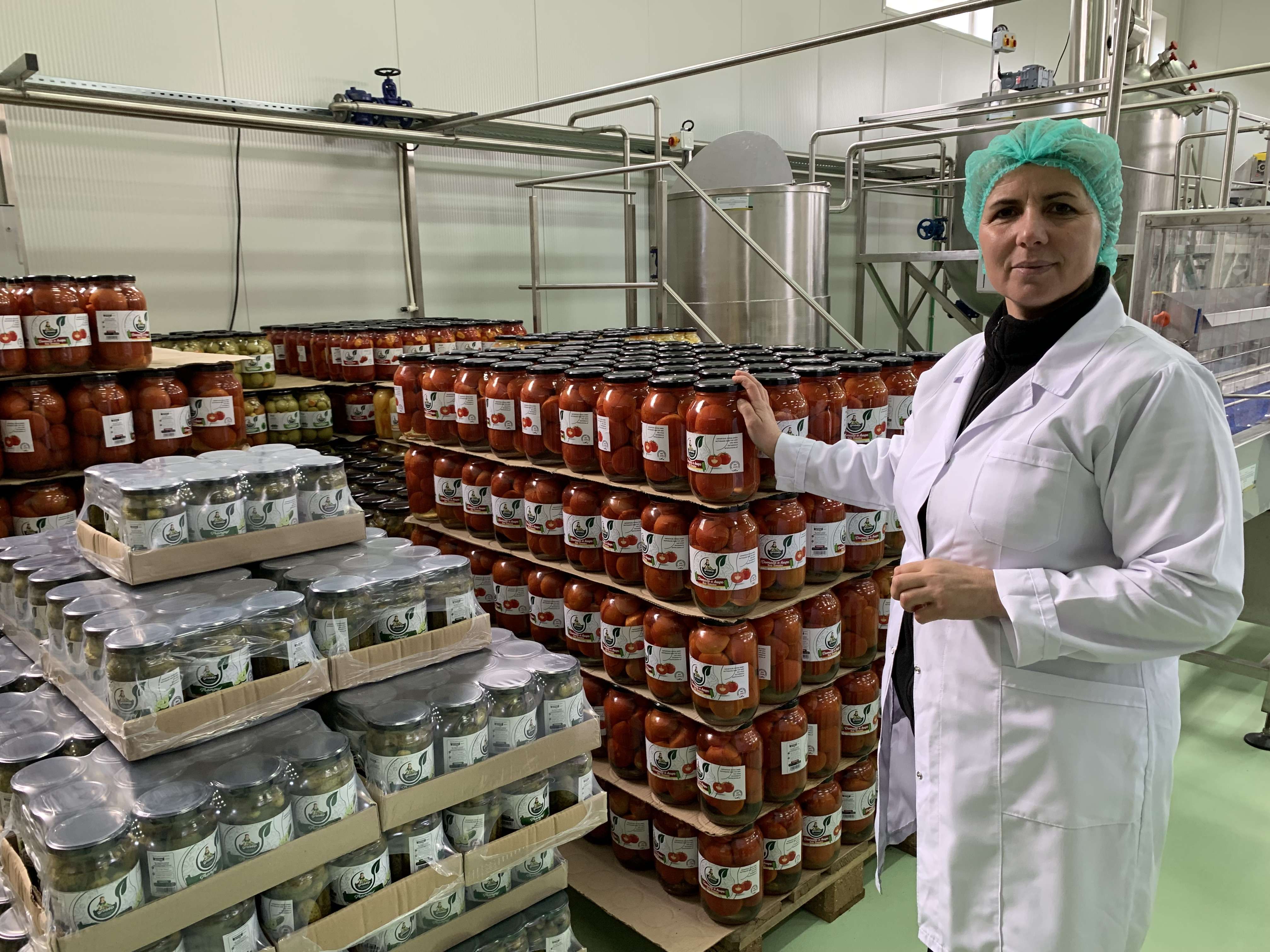
It all started in 2015, when 15 unemployed women from Sllatina got together to talk about what they could do with their time, since their kids were growing up. With €10 each in hand, they started a business to produce preserved vegetables (pickles) in a car garage. Fast forward to seven years later, in 2022, the business—named GRASEP, meaning “women of upper Sllatina”—not only produces for the local market, but with support from the USAID Kosovo Compete Activity, implemented by DT Global, it exports to Austria and Switzerland.
“We needed to do something with our time,” said Valbona Ajeti, owner of GRASEP, “and we thought about what we could do best. We were already working on our land producing various vegetables and pickles for our family. So, we decided to focus on that.” Valbona, led the army of 14 women to produce pickles in her garage. However, they needed more money to purchase jars. “I sold my wedding gold jewelry and bought jars for the pickles,” she said. “That was the best investment I made, as since then, we have expanded and become a profitable business.”
GRASEP was producing only for the local market until recently. Last year, Valbona participated in the first Food Sector Forum that was organized by the USAID Kosovo Compete Activity together with local food associations PePeKo and Organika. There, she met diaspora buyer Ekena.at, an online supermarket, and established an export contract to Austria. So far, GRASEP has delivered six orders to Ekena.at worth over €60,000.
To create further export linkages, this year, Valbona participated in the USAID Kosovo Compete Activity-supported Diaspora for Women Entrepreneurs program, implemented by the local organization GERMIN. Through the program, 20 women entrepreneurs were matched with diaspora professionals for mentorship and knowledge-transfer.
“I learned a lot from my mentor Sirena, about presenting my business and improving my selling skills,” said Valbona. As part of the program, a B2B event was organized in Zurich, Switzerland where 10 of the mentored women participated. Valbona was one of them. The women entrepreneurs held over 80 B2B meetings with diaspora and visited two diaspora-owned businesses. “This was a very valuable experience for me as it was the first time I had the opportunity to travel outside of the region to promote my business.” One of the B2B meetings that Valbona held was with diaspora-based food distributer R.B Import Export GmbH, who imports food into Switzerland from Kosovo and the region. Valbona invited the owner of the company, Rexhep Berisha to visit her factory.
A few weeks later, Rexhep visited GRASEP in Sllatina. “I was really impressed with GRASEP’s products and facility, and immediately decided that I wanted to sell the products in the Swiss market.” The next day, Valbona and Rexhep signed a contract to export six GRASEP products to Switzerland.
“I’m exporting to European markets through the support USAID has given me. It’s not just me or GRASEP who has benefited from USAID support, it is also the 14 women who continue to work for GRASEP from day one, their families, and the farmers including eight women and minorities who produce vegetables for GRASEP,” said Valbona.
Looking ahead, Valbona plans is to continue to expand exports and promotion of her business. “Now, I will need to build a new warehouse to accommodate the increasing orders and exports.”
The second cohort of the USAID-supported Diaspora for Women Entrepreneurs program started in December 2022, with another 20 local women entrepreneurs who are benefiting from mentorship with diaspora professionals and B2B meetings in Germany.